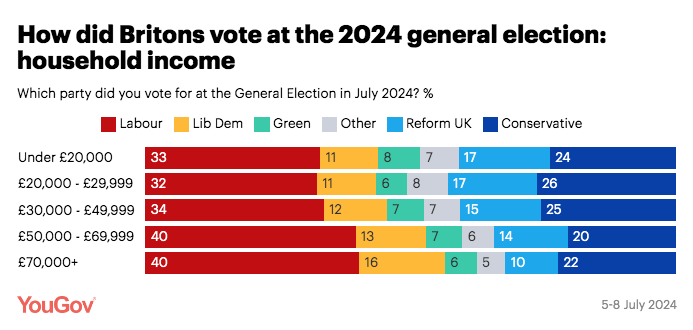Tyler Cowen just lately linked to a research that means the general public doesn’t imagine in provide and demand, not less than when utilized to the housing market:
Latest analysis finds that most individuals need decrease housing costs however, opposite to skilled consensus, don’t imagine that extra provide would decrease costs.
Earlier than addressing housing, it’s value noting {that a} related type of pessimism crops up in lots of different contexts. And as we’ll see, it’s a mistake to view this pessimism as a denial of the availability and demand mannequin—one thing else it happening.
Think about the next two situations, introduced to a median particular person:
A. A agency faces a lot increased prices for an essential ingredient to its product.
B. A agency advantages from a lot decrease prices for an essential ingredient for its product.
In every case, what’s the agency more likely to do? To an economist, nothing might be easier. Our fashions are symmetrical. A profit-maximizing agency can have an incentive to boost costs in case A, and lower costs in case B. (BTW, concept predicts these outcomes even when the agency is a monopoly.)
Over the course of my life, I’ve discovered that this isn’t how common folks take a look at issues. It’s not a query of not being conscious of provide and demand, they’ve uneven pessimism. What are the causes of this pessimism?
1. Maybe the uneven pessimism is true. Possibly companies actually would increase costs in case A, however not lower them in case B. In any significant future sense this isn’t the case. However it isn’t not possible that buyers might need seen just a few actual world examples of costs not being lower straight away, resulting from nominal “worth stickiness”.
2. In a usually inflationary surroundings, folks may accurately discover costs rising far more usually than they fall. Economists are concerned about relative costs, however the common particular person seems to be at nominal costs. If a agency raises costs by 2% in a yr of 4% CPI inflation, that’s a worth lower to an economist and a worth rise to a median particular person.
3. Maybe persons are reluctant to sound naïve, or Pollyannaish. I’m hardly the primary particular person to note that pessimism is extra intellectually modern than optimism. Individuals like Stephen Pinker are considered as notable contrarians merely for pointing to a bunch of optimistic tendencies that each half method educated particular person ought to already find out about. The world is getting richer, more healthy and safer? What else is new? However apparently he has turn into a controversial determine.
4. The media principally reviews unhealthy information. So what’s a voter to assume when requested if some new authorities coverage would repair some lengthy standing drawback? Do they anticipate to get up subsequent yr to newspapers reporting that our financial issues are actually solved and that housing is now “inexpensive”?
5. Equating greed with excessive costs. Really, companies that lower costs after enter costs fall are being “grasping”. However many individuals most likely assume that the profit-maximizing possibility in that case is to not lower costs. As a result of they’ve already determined that companies are grasping, they then purpose backward to the conclusion that costs gained’t be lower.
I believe that individuals do imagine that the legal guidelines of provide and demand apply to the housing market. Ask them what is going to occur to residence rents if a flood of immigrants pour into their city. I believe that they’re answering a distinct query from what an financial pollster thought they have been asking. The pollster may assume they’re asking, “Different issues equal, how does extra housing provide influence worth?” The general public may reply as if requested “If this regulatory tweak occurs, do I anticipated residence rents to be decrease a yr from as we speak?
For my part, these ballot questions usually are not notably helpful. As a substitute, envision a rustic the place one political social gathering is against constructing extra housing and the opposite political social gathering favors an enormous push to extend the availability of latest housing. And in addition suppose that these coverage views are extensively identified among the many public. Now ask a younger voter about to graduate from faculty which social gathering is more likely to make housing extra inexpensive.
We don’t want to take a position on that query. A couple of months in the past the British Conservatives campaigned on a considerably Nimby platform, whereas Labour ran on a strongly YIMBY platform. Take a look at this survey from the current election:
You may assume that this sample is because of the truth that richer folks vote Conservative. But it surely’s not that easy:

In equity, a portion of Conservative voters have been retirees with modest incomes, who might have been extra prosperous when youthful.
